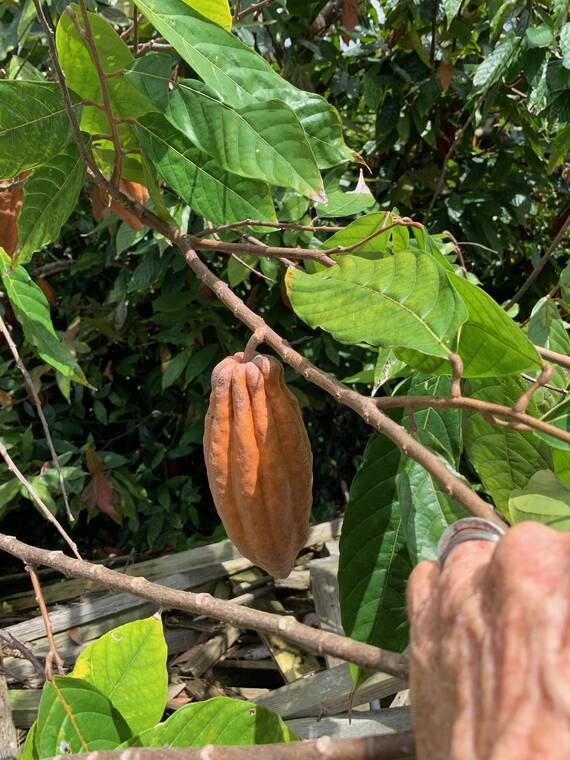BANGKOK (AP) — Trudging up a lush mountainside to a remote village, plunging through a swift-moving river in the footsteps of elephants and cruising Bangkok’s gleaming luxury malls — with each step, I walked into different worlds, each one beautiful, all in Thailand.
Don’t forget glittering temples, bustling night markets and world-famous Thai massages to soothe weary muscles.
BANGKOK
The capital’s malls and markets are endless, from Siam Paragon, filled with designer brands and an upscale food court, to stands of cheap goods where souvenir-seekers haggle over the price of utensils, bracelets and trinkets. After dark, the night markets come alive, bustling with shoppers grabbing cheap sunglasses and shoes while families and friends enjoy soups and curries in more bearable heat.
Bangkok is also famous for its opulent temples, including Wat Pho, Temple of the Reclining Buddha, with its stair-step monuments to royalty called chedis, similar to stupas. The centerpiece is a massive horizontal Buddha, its gold girth touching the temple walls from end to end.
Next door at the white-walled Grand Palace complex, black-clad mourners waited in snaking lines to pay their respects to King Bhumibol Adulyadej. The beloved leader died in October after a 70-year reign — his image ubiquitous on billboards and shrines.
The complex also houses Thailand’s most sacred temple, Wat Phra Kaew, or Temple of the Emerald Buddha, with sparkling, gold-decked buildings. The surprise was the size of the famed Buddha figure, carved from jade and dressed in gold, but just 26 inches high.
CHIANG MAI
Chiang Mai’s walled old city houses more famous temples, including Wat Chedi Luang. Its towering red brick is worn to black, its steps have all but crumbled, but stone dragons still stand guard.
My favorite temple, moss-covered Wat Pha Lat, is tucked in a forest just outside Chiang Mai. From the university, I got there by hiking Monks Trail, which is marked by strips of orange fabric. Head farther up the mountain to popular Doi Suthep temple or hail a songthaew, a shared taxi.
Hungry after hiking? Hit the street vendors and restaurant options that abound back in the tourist center: vegetarian-friendly green curried rice, fried mushrooms and pad thai, plus plenty of beef and pork speared on sticks for meat-eaters. To cool off from the heat or spice, try fresh-cranked pomegranate juice or coconut ice cream.
TREKKING
Chiang Mai is the jumping-off point for trekking, elephant tours and other outdoor adventure. A friend and I booked an ecotour trek and overnight home stay in a village some 4½ hours away in the Mae Hong Son region. The Karen ethnic group lives there, farming rice and cabbage on vibrant green hillsides. Our guides cut down wild passion fruit for us to sample, pointed out spiders as big as a hand and chopped bamboo to whittle into cups. After reaching the mountaintops near the Myanmar border and making it to the village, we used those cups to slug homemade rice liquor.
We set up a bed of blankets on the wooden floor and rested between bags of rice as our hosts cooked dinner in a hearth built into the floor. Sleeping in a home open to the elements was the only time I got cold on the trip, and the only place I skipped a shower, passing up a tub of chilly water in an outhouse with a squat toilet.
ELEPHANTS
I wanted to enjoy these majestic creatures, iconic in Thailand but often exploited, in an ethical way. The Elephant Nature Park allowed us to travel alongside them, not on their backs. We kept them moving through the jungle by thrusting bananas and melon into their eagerly outstretched trunks. It was surreal and a bit unnerving as we led four mostly blind and elderly female elephants on a muddy, uneven path, trying to keep our balance while avoiding their feet. In another part of the sanctuary, we got a peek at a baby elephant.
PHI PHI ISLANDS
After trekking, we looked forward to decompressing on an otherworldly beach on the Phi Phi Islands — pronounced “pee pee.” But rain was falling as we arrived and promised not to let up.
Instead of the party-hearty main town on Ko Phi Phi Don, the largest island, we opted for a secluded resort. A long-tail boat plowed through choppy waters to get us there, leaving us windblown and wet from ocean spray and rain as we tried to photograph the green-topped rock rising from the Andaman Sea.
The weather cooperated enough the next day for a group tour to the smaller island, Koh Phi Phi Leh, and its hotspot, Maya Bay, which is breathtaking but overrun after the movie “The Beach” made it famous. Even early in the day, it was tough to find a spot free of people posing with selfie sticks.
Nearby, we reveled in an empty swath of sand framed by cliffs before winding through rock formations to the Blue Lagoon, a green-walled swimming hole packed with tourist boats.
After the beaches and long days in the devout atmosphere of temples, without blinking, our nights turned to buying knockoffs of favorite overpriced sandals, swigging 70 baht ($2) beer and watching men in elaborate makeup and sequined ball gowns perform a dance in a packed outdoor market.
That’s Thailand, country of contrasts.





